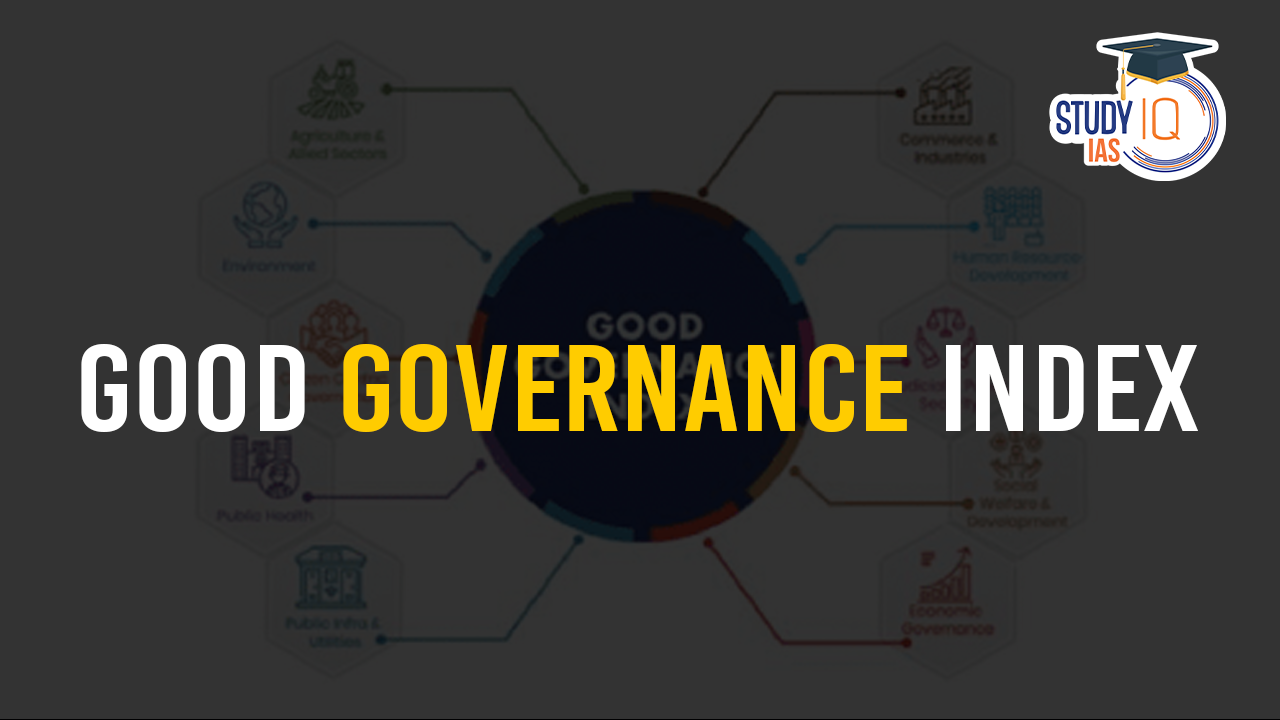Table of Contents
Context: The Union government has decided not to release the Good Governance Index 2023 (GGI) for this year, instead publishing the next edition in 2025.
About Good Governance Index (GGI)
- GGI is a comprehensive framework to assess the State of Governance in all the States and UTs which enables ranking of States/Districts and presents a comparative picture.
- It is a biennial exercise started in 2019.
- Prepared by: Department of Administration Reforms and Public Grievances (DARPG), Ministry of Personnel, Public Grievances & Pensions.
- GGI assesses states and union territories across 10 sectors, including agriculture, commerce, human resource development, public health etc.
- The last GGI index was released in 2021, in which Gujarat secured the top spot.
Objectives of GGI
- Encourage Good Governance Practices: Foster a culture of transparency, accountability, and efficiency in governance.
- Benchmarking Governance: Provide measurable benchmarks to compare the performance of states and UTs.
- Policy Making and Implementation: Assist governments in formulating and implementing evidence-based policies.
- Promote Competitive Federalism: Encourage healthy competition among states to improve their governance practices.
Sectors and Indicators of Good Governance Index (GGI)
The GGI framework includes 10 sectors, further divided into 58 indicators, as follows:
- Agriculture and Allied Sectors: Focuses on crop production, irrigation, and allied services.
- Commerce and Industries: Evaluates industrial development, ease of doing business, and exports.
- Human Resource Development: Covers education, literacy rates, and skill development.
- Public Health: Assesses healthcare infrastructure, life expectancy, and maternal mortality rates.
- Public Infrastructure and Utilities: Includes roads, power supply, and digital connectivity.
- Economic Governance: Reviews fiscal management, tax collection, and financial inclusion.
- Social Welfare and Development: Examines social security schemes, housing, and gender equality.
- Judicial and Public Security: Focuses on law enforcement, justice delivery, and crime rates.
- Environment: Addresses environmental sustainability, forest cover, and pollution control.
- Citizen-Centric Governance: Assesses e-governance, public grievance redressal, and transparency.


 SAMARTH Udyog Bharat 4.0: Transforming I...
SAMARTH Udyog Bharat 4.0: Transforming I...
 BHIM 3.0 Launched by NPCI: Key Features,...
BHIM 3.0 Launched by NPCI: Key Features,...
 150th Summit of Inter-Parliamentary Unio...
150th Summit of Inter-Parliamentary Unio...





















